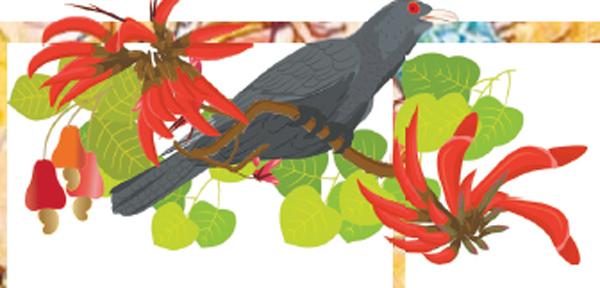
Some words in the English language look similar but they have different meanings. Therefore you have to make an effort to learn them.
Ago / past / back
‘Ago’ is used to show how far back in the past something happened. Mary’s husband died 18 years ago.
‘Past’ means ‘done, used or experienced before now’
We were asked to study some past examination papers to get an idea of the questions.
‘Back’ means ‘in, into, or to the place or position where someone or something was before.’
I’ll be back in a minute.
Agree with / agree to
We usually agree with a person but agree to a proposition or idea.
I don’t agree with punishing children.
The Cabinet will never agree to such a proposal.
Aid / abet
‘Aid’ means ‘to help someone do something’ Welfare spending aids economic development.
‘Abet’ means ‘to help someone do something wrong or illegal.’
‘Aid and abet’ is a legal tautology.
Aids / HIV
‘Aids’ or ‘AIDS’ is the acronym for Acquired Immune Deficiency Syndrome. It is a medical condition but not a disease.
HIV stands for Human Immunodeficiency Virus. It is also not a disease.
Alibi / excuse
An alibi is the defence that an accused person could not have committed a crime because he was elsewhere at the time.
An excuse is an explanation to cover some fault or shortcoming.
Allegory / fable / parable / legend
An allegory is a play or poem in which characters symbolize a deeper moral message. A fable is a short story with animals as characters. It also has a moral lesson. A parable is a short and simple story illustrating a religious or moral principle. A legend is a traditional story thought to be true.
Allergy / aversion
An allergy is an oversensitive reaction of the body to some substance. An aversion is a dislike.
He has an aversion for hard work.
All ready / already
‘All ready’ means ‘prepared and ready for some proposed action’
‘Already’ is an all-purpose word that vaguely expresses a time relationship.
She has already typed the letter.
All right / alright
‘All right’ means ‘satisfactory, but not excellent.’
The food is all right.
‘Alright’ is another spelling of ‘all right’ that some people think is incorrect. However, it has been in use for more than a century.
I think I did alright.
All together / altogether
‘All together’ means ‘gathered in the same place at the same time.’ ‘Altogether’ means ‘completely, entirely, or totally.’ It is an old custom that has vanished altogether.
Allude / elude
‘Allude’ means ‘to refer to something indirectly.’ ‘Elude’ means ‘to escape by cunning or skill.’
Rockwood alluded to some bad things that happened in the organization.
The suspect eluded his pursuers by jumping into a river.
Altar / alter
‘Altar’ is a holy table or surface used in religious ceremonies. ‘Alter’ means ‘to change or to make someone or something change.’
The city centre has altered beyond recognition.
Alternate / alternative
‘Alternate’ means ‘one after the other’ or ‘to take turns.’ An alternative is a choice between two or more options.
The service runs on alternate days.
Have you any alternative suggestions?
Although / though
‘Although’ is used to introduce a statement that makes your main statement seem surprising or unlikely. Although in poor health, Roy continued to carry out his duties.
‘Though’ is used as a synonym for ‘although.’ However, ‘though’ is considered to be colloquial.
Though Rani is almost 40, she still looks beautiful.
Amateur / novice
An amateur indulges in an activity as a pastime. A novice is a beginner.
I am still a complete novice at the sport.
